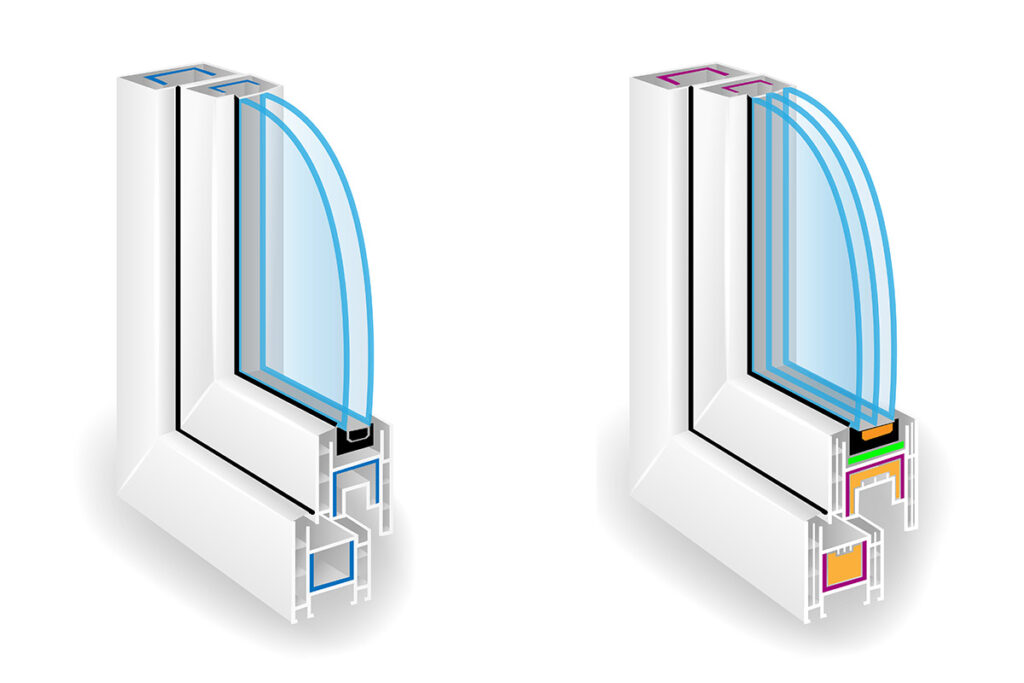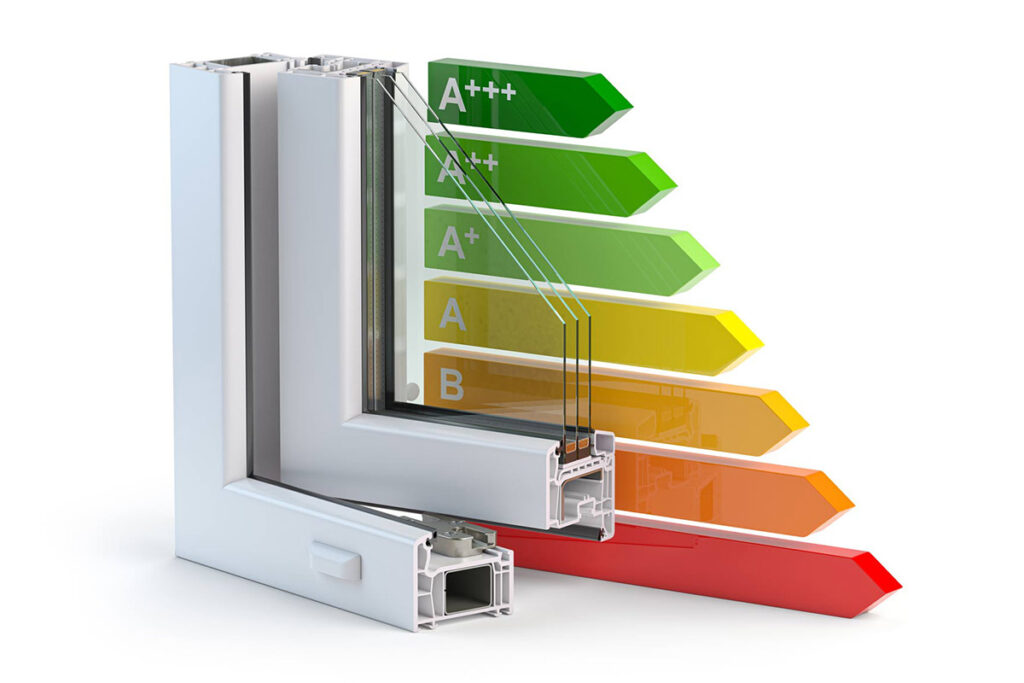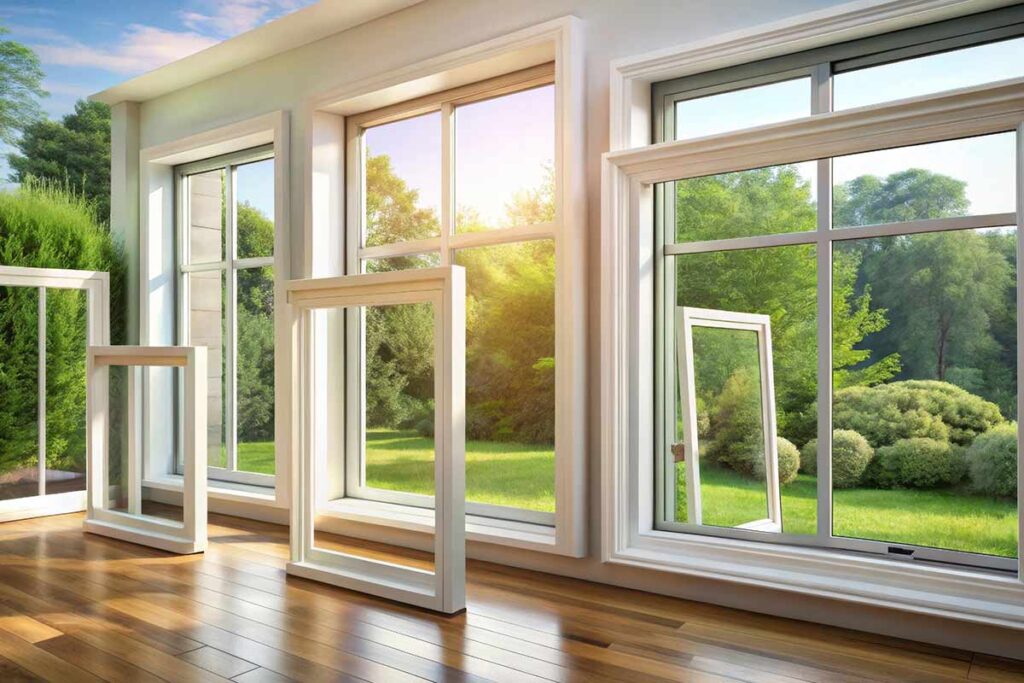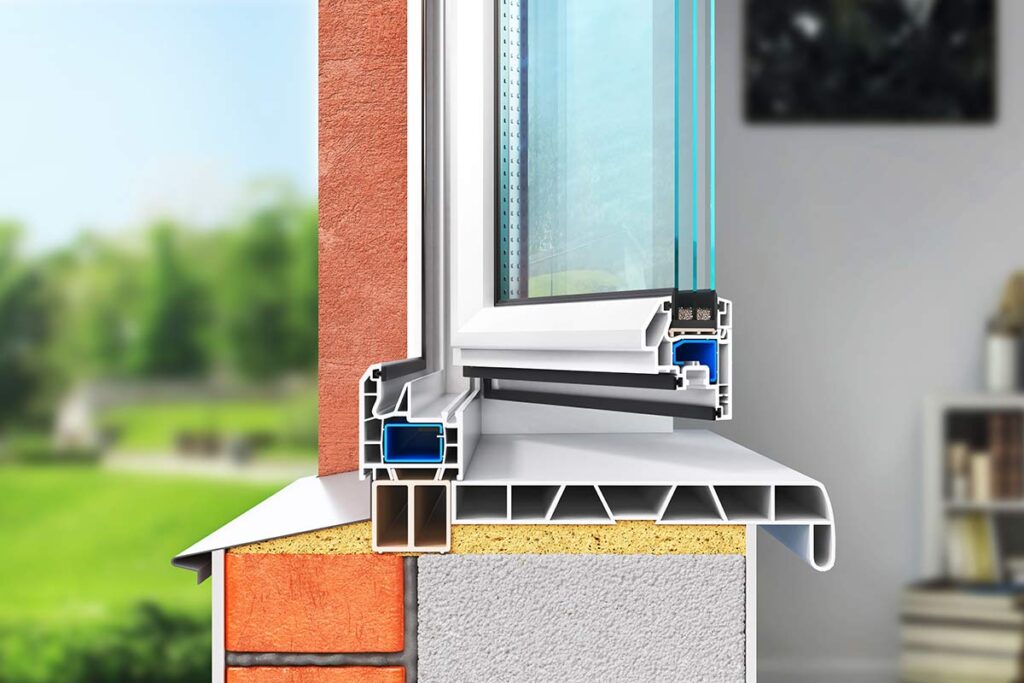
Table of Contents
ToggleWhy Energy Efficiency Matters for Your Home
Energy efficiency is more important than ever with rising energy costs and environmental concerns. One of the best ways to boost your home’s energy efficiency is by upgrading your windows with double or triple glazing. Both options offer significant improvements in insulation, but which one is best for your home?
In this guide, we’ll explore the benefits of both double and triple glazing, compare their energy efficiency performance, and provide key insights to help you decide which option suits your needs.
How Double and Triple Glazing Work
Both double and triple glazing are designed to insulate your home by reducing heat transfer through the windows. However, there are some key differences in how they achieve this.
Double Glazing
Double glazing consists of two panes of glass separated by a gap filled with air or an inert gas like argon. The gas-filled space acts as a thermal barrier, slowing down heat transfer and improving insulation.
Triple Glazing
Triple glazing takes it a step further by adding an additional pane of glass and an extra gas-filled gap, providing two layers of insulation. This extra pane boosts the window’s insulating power, making it more effective at reducing heat loss.

Comparing Energy Efficiency: Double vs Triple Glazing
1. Thermal Insulation (U-Value)
The U-value measures how well a window prevents heat from escaping. The lower the U-value, the better the window’s insulating performance.
- Double Glazing: Typical U-values range from 1.0 to 1.6, depending on the glass and gas used. This is a significant improvement over single glazing, which usually has a U-value of around 5.0.
- Triple Glazing: U-values for triple glazing are even lower, often between 0.6 and 0.8. This extra layer of insulation can further reduce heat loss, particularly in colder climates.
Key Takeaway: If you live in a very cold area, triple glazing will offer better thermal performance. However, for most UK homes, high-quality double glazing is often sufficient to achieve excellent energy efficiency.
2. Energy Savings
Both double and triple glazing will reduce your heating bills by improving your home’s insulation. However, the level of savings can vary depending on the type of glazing you choose.
- Double Glazing: Can save the average UK household up to £150 a year on heating bills.
- Triple Glazing: Offers marginally higher savings, potentially up to £175-£200 per year, especially in colder climates.
Fun Fact: Triple glazing can reduce heat loss by up to 50% more than single glazing, while double glazing reduces heat loss by around 40%.
3. Solar Gain
While both double and triple glazing are designed to keep heat inside your home, they also differ in how much natural heat from sunlight (solar gain) they allow to enter.
- Double Glazing: Allows more solar gain, which can help warm your home naturally during sunny winter days.
- Triple Glazing: Due to the extra pane, triple glazing reduces solar gain slightly, meaning your home might not benefit as much from the sun’s natural warmth.
Pro Tip: In regions with milder winters, double glazing might be the better option as it allows for more natural sunlight to warm your home, reducing heating needs during the day.
4. Condensation Control
Both double and triple glazing help reduce condensation by providing better insulation, but triple glazing can offer additional protection.
- Double Glazing: Greatly reduces the occurrence of condensation, especially when compared to single glazing.
- Triple Glazing: Offers superior condensation control due to the extra layer of insulation, reducing the likelihood of condensation forming on the inside of the window.
5. Noise Reduction
Both double and triple glazing reduce noise pollution, making your home more peaceful, but triple glazing has the edge when it comes to blocking out external sounds.
- Double Glazing: Can reduce noise levels by around 31 decibels, depending on the glass and frame used.
- Triple Glazing: Can offer even greater noise reduction, making it a better option if you live in an especially noisy environment (e.g., near a busy road or airport).
Did You Know? Triple glazing can reduce noise levels by up to 40 decibels, which is great for homes in high-traffic areas or noisy neighbourhoods.

Is Triple Glazing Worth It?
Triple glazing undoubtedly offers superior thermal insulation and noise reduction compared to double glazing. However, it’s not always the most cost-effective solution for every home.
When Triple Glazing Makes Sense:
- Colder Climates: If you live in a particularly cold part of the UK or a region with harsh winters, the extra insulation provided by triple glazing can help keep your home warmer and your energy bills lower.
- High-Noise Areas: For homes located near busy roads, airports, or train stations, the additional noise reduction offered by triple glazing can be a worthwhile investment.
- Future-Proofing: If you’re looking for the best long-term investment, especially in terms of insulation, triple glazing offers superior performance.
When Double Glazing is Enough:
- Milder Climates: In most parts of the UK with temperate weather, high-quality double glazing provides sufficient insulation and energy efficiency.
- Budget-Friendly: Double glazing is more affordable and still offers excellent energy savings and comfort for the average homeowner.
Energy Efficiency Ratings and What to Look For
Whether you opt for double or triple glazing, it’s essential to choose windows with high energy ratings. In the UK, windows are rated based on the Window Energy Rating (WER) system, which grades windows from A++ (most efficient) to G (least efficient).
Key Factors:
- U-Value: Measures heat loss—aim for a U-value below 1.6 for double glazing and 0.8 or lower for triple glazing.
- G-Value: Measures solar gain—a higher g-value allows more sunlight to warm your home naturally.
- Air Leakage: Lower air leakage means less heat is lost due to draughts.
Pro Tip: For maximum energy efficiency, look for double or triple glazing with an A+ WER rating.

Installation Considerations for Maximum Efficiency
To get the most out of your double or triple glazing, proper installation is crucial. Even the most energy-efficient windows won’t perform well if they’re installed poorly. Always hire certified installers who have experience fitting energy-efficient windows.
Installation Tips:
- Ensure a tight seal: Proper sealing around the window frame prevents air leakage.
- Double-check insulation: Make sure the spacers and gas fill (argon or krypton) are correctly installed to provide optimal insulation.
- Professional fitters: Always use a qualified, certified installer to avoid costly mistakes.
Conclusion: Double or Triple Glazing—Which Should You Choose?
Both double and triple glazing provide excellent energy efficiency improvements for your home, but the choice between the two depends on your specific needs. If you’re looking for a cost-effective solution that offers great insulation and energy savings, double glazing is a fantastic option for most UK homes. However, if you live in a particularly cold area or face high levels of external noise, investing in triple glazing could be the better long-term choice.
Ultimately, both options will help you reduce heat loss, lower your energy bills, and create a more comfortable living environment—making them both smart upgrades for any homeowner.
